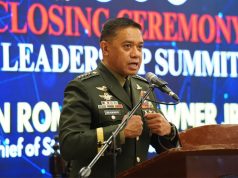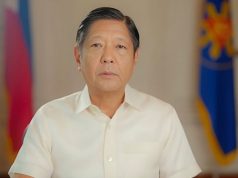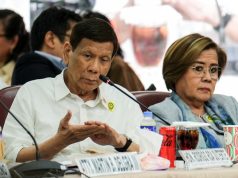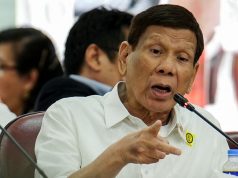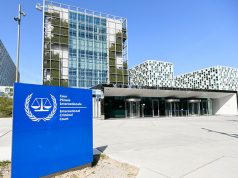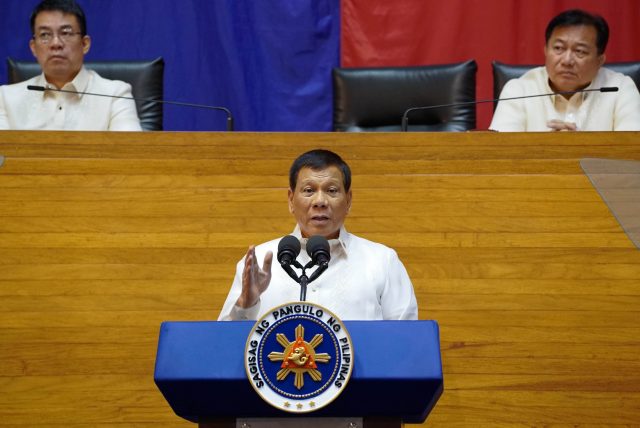
Atty. Mel Sta. Maria is the Dean of the Far Eastern University Institute of Law and Professor at the Ateneo de Manila School of Law.
Rodrigo Duterte is the President of the Philippines. His obligation is to oversee the welfare of more than 100,000,000 Filipinos, both here and abroad. This is an awesome mandate but necessary. And yet, in his 2017 State of the Nation Address viewed and heard on nationwide radio and television, he spontaneously and candidly said:
Alam mo kasi in this country it is a rule of majority. I did it for the 50 plus one because in a vote of 100, I get 51, 50 plus one. Fifty is one-half, one, that is majority of one, I win. ‘Yung 49, ‘yon ‘yung mga… I do not have to make them happy.
In law and litigation, when a witness testifies in a categorical, straightforward, spontaneous and frank manner, his statements achieve high credibility sufficient to be believed. That ad-lib — “I do not have to make them happy” — has all such attributes. The President here is believable. But that is not good especially if we compute, not in the tens, but in the millions, as in 49,000,000 people.
Actually, President Duterte got only about 16,000,000 votes. Majority of the registered voters selected somebody else. So, following his thought, does President Duterte believe he is under no obligation to make happy those who did not vote for him, which is a majority of all the registered voters? While this query is an over-simplication resulting from an oversimplified presidential logic, that logic nevertheless reveals a non-inclusive mentality.
The President also said:
“It is time for us to fulfill our mandate to protect our people from these crimes that have victimized … You know, huwag ninyo akong takot-takutin niyang preso ‘yung international court of justice. S***, I am willing to go to prison for the rest of my life. Ang importante sa akin ginagawa ko ‘yung gusto ko.”
The context is clear by his subsequent off-the-cuff statements. He continued by saying that he is used to being in prison because, when he was young, “labas pasok na ako sa presuhan.” He even challenged everyone to get the records in Davao.
Going to prison means one has committed crimes. A leader who requires everyone to follow the rule of law but who, himself, does not follow the rule of law has the mentality of a king, a sovereign who thinks he can do no wrong.
He subliminally, may believe that he is the law. That smacks of despotism. That is not democratic. No one should be above the law.
Should this statement — “Ang importante sa akin ginawa ko ‘yung gusto ko” — be brushed aside again as a “culture” thing? Should we not believe it? Or does its spontaneity reveal something deep in his psyche, something frightening?
Worse, after this “ang-importante-sa-akin-ginawa-ko-yung-gusto-ko” statement, many of the representatives even applauded. But, come to think of it, that was not a surprise. What can you expect from “rubber-stamps”?
Reviewing my notes on the SONA, I did not like the following:
- The cursing and the bad-mouthing
- The cavalier reference to philandering
- The fear card
- The rich/poor card
- The retribution eye-for-an-eye
- Disregard for core human rights values
- The silence on contractualization
- The “sooner-or -later” West Philippine Sea Decision reference
- The Balanggiga insertion
- The De Lima reference
- The non-talk on federalism
- The Obama- Trump comparison
- China
- Attack on media
- No mention of minimum wage
- Sweeping statement on free hospitalization
- The death sentence
- The rape/carnage card
- The non-specification of the country’s economic direction
- Reference on the Davao-mayor-parochial perspective in problem-resolution
Well, I also did not like the camera shots of the President — the eyes, the hands, the fingers … what’s that all about? But it’s just me. I am not artistic enough.
I liked the following:
- The concern for soldiers and police
- Environment
- Mining
- Rebuke to the NPA
- OFWs
- Amendment to the Procurement Law
- Enforcement of RH Law
- TROs
- Internet
- Disaster preparedness
- Tax reform
- The proposed national land use bill
Maybe I just did not see it, but there was no standing ovation at any point in the speech.
I was hoping that the President, going into his second year, will be more reconciliatory and inclusive, at least in his opening salvo, the SONA. But it was “business as usual.” President Duterte and his SONA were consistent in form and substance.




